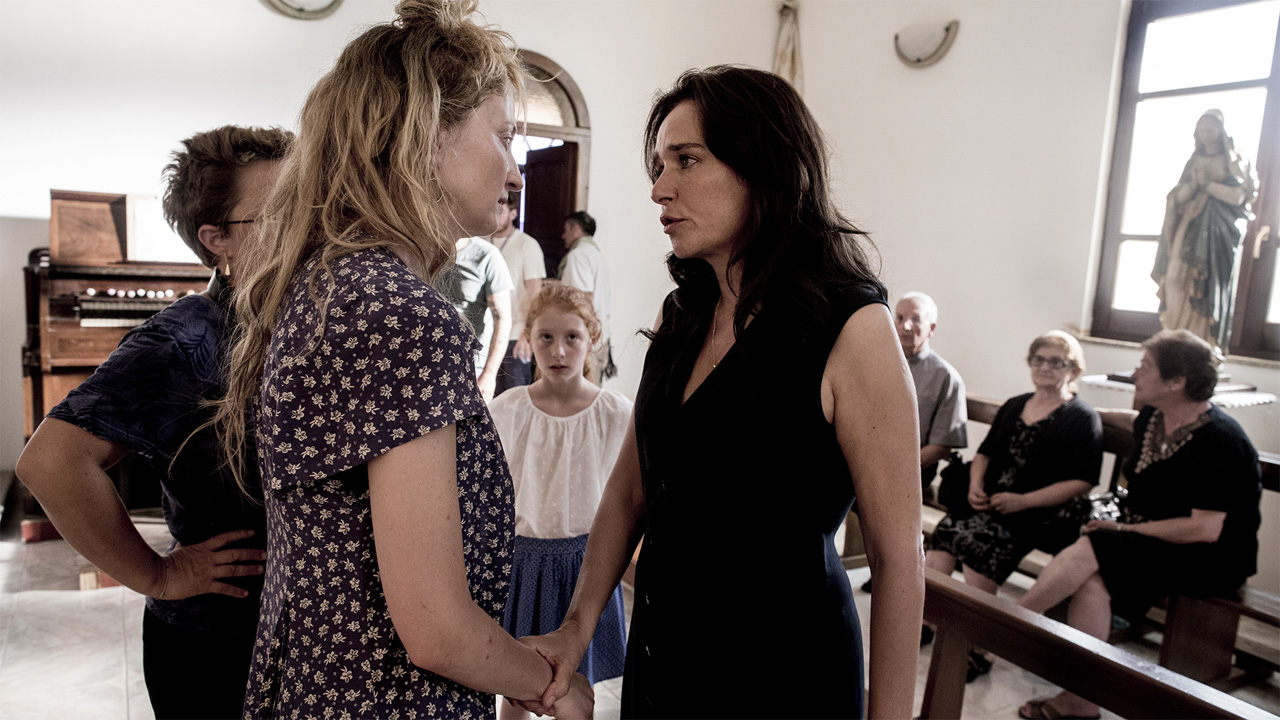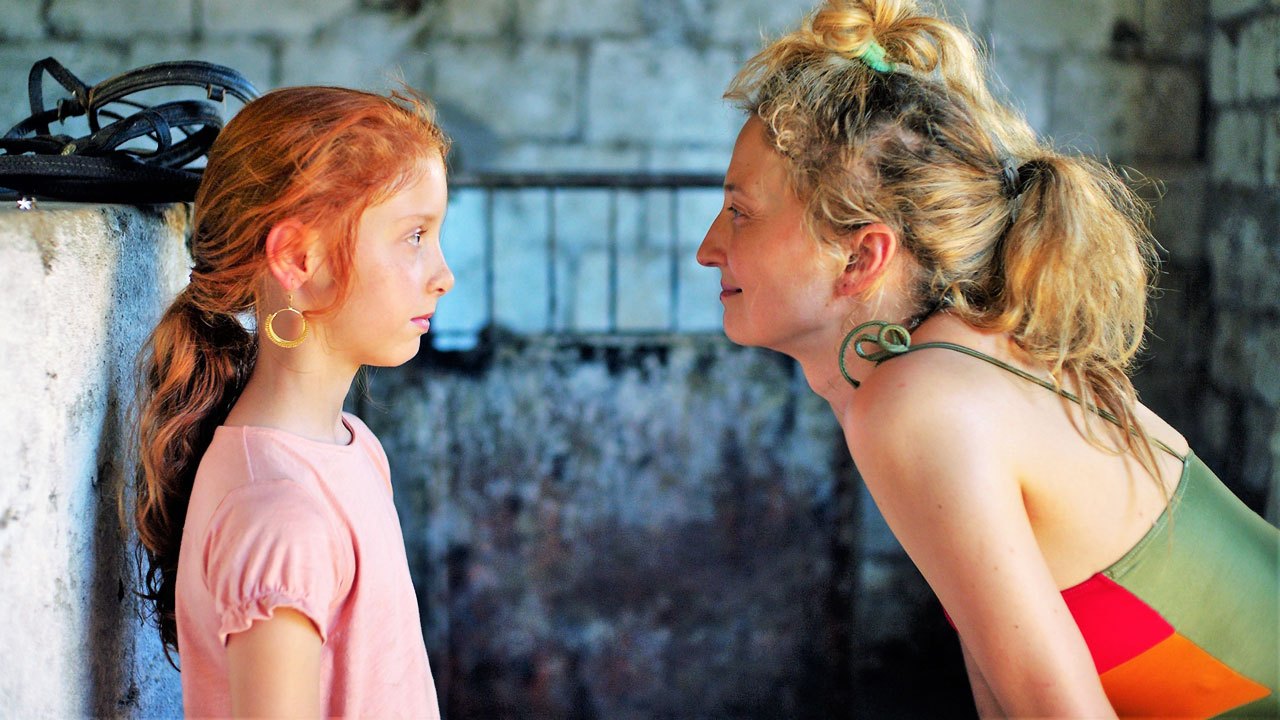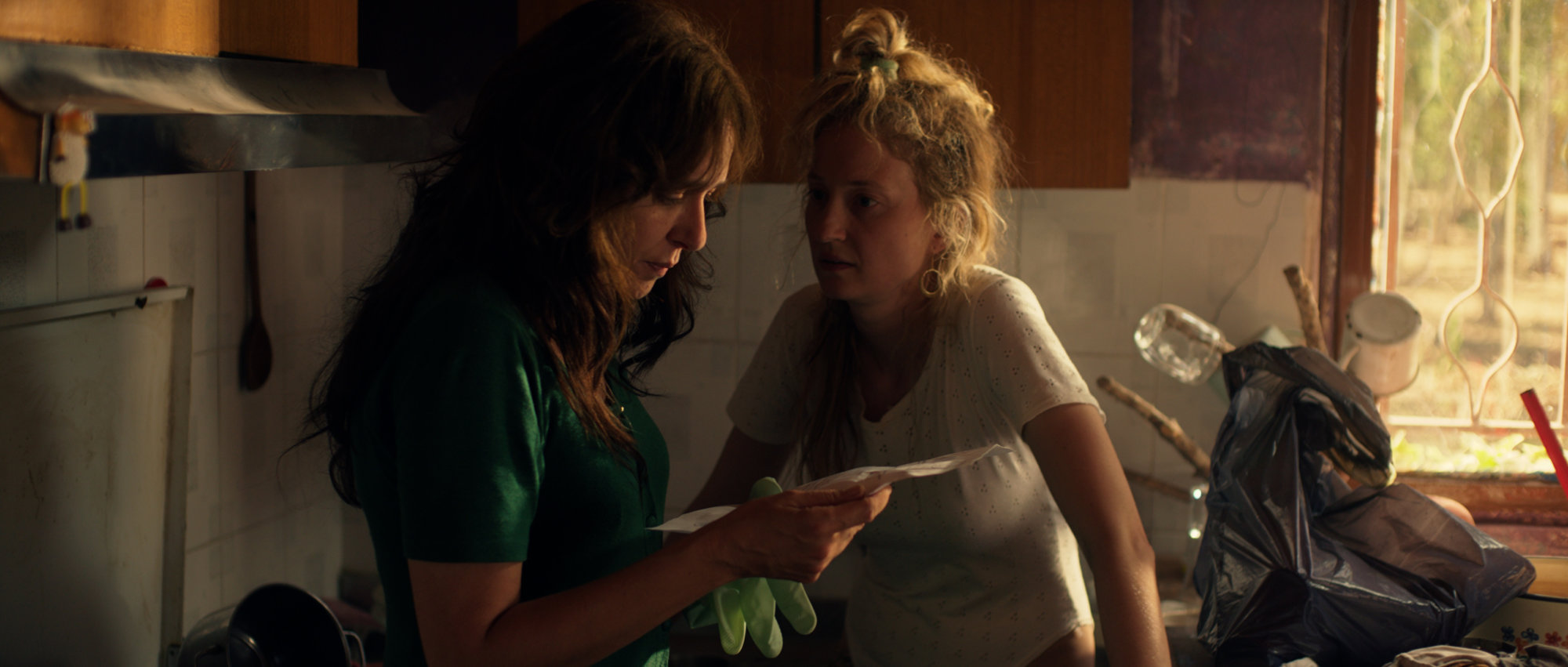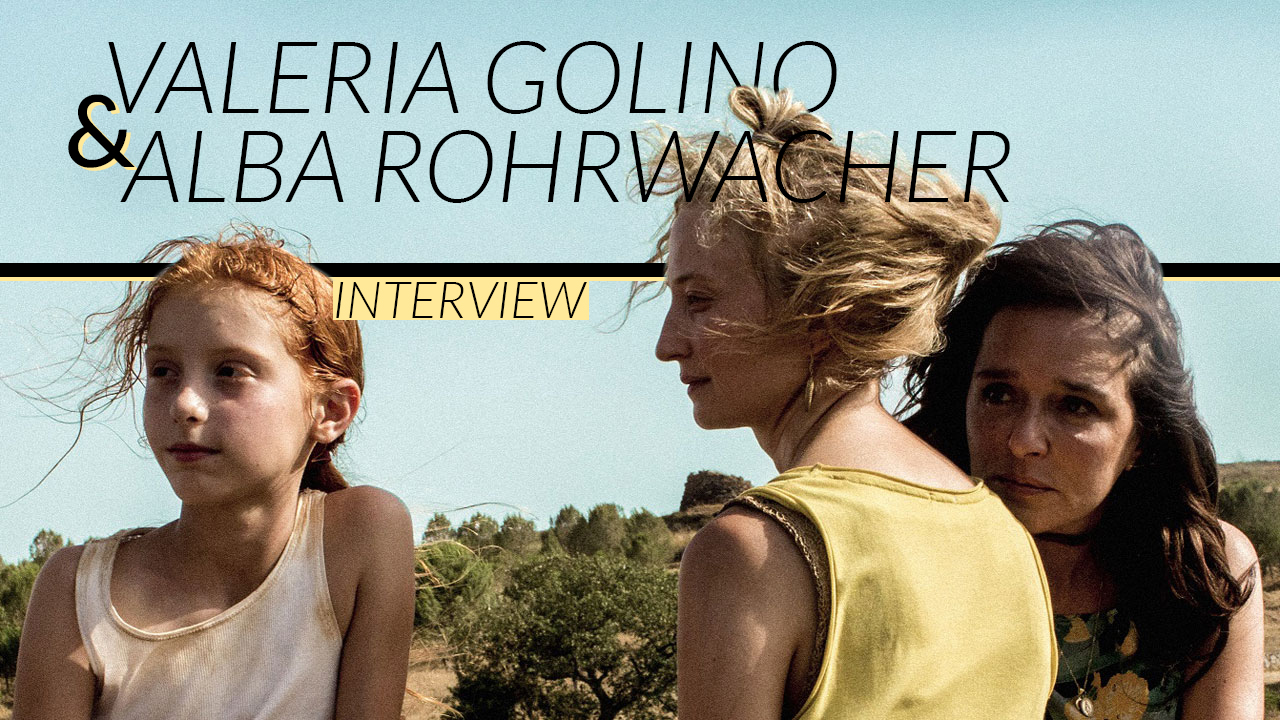“Daughter of Mine” is a story that digs into the depths of a purely feminine universe, as simple as the love of a mother but as complicated as feelings can be. In its 97 minutes, the movie tells the story of two women, Angelica and Tina, the first completely lost to her vices and the second too busy playing the part of a perfect woman. Both of them are mothers, in their own way, both they are also way more complicated than a first glance could suggest: two deeply different women who walk down parallel paths that will lead them to discover unprecedented sides of their souls, not always positive and not always easy to face.
But “Daughter of Mine” is also (and mainly) the story of Vittoria, a young girl who serves as a common thread for a plot that is undoubtedly though, but that deeply involves the viewer as it manages to show a side of motherhood that is almost necessary, turning into a destructive and overwhelming force. In a village surrounded by the beauty of a wild and silent Sardinia, whose majestic nature serves both as shelter and as danger, Laura Bispuri’s camera follows Angelica (Alba Rohrwacher), the 10-years-old Vittoria (Sara Casu) and Tina (Valeria Golino) in an exciting rhythm of events, made up of sequence plans and strong contrasts between characters. After the work begun with “Sworn Virgin,” Laura manages once again to capture the different nuances of the human soul: a frame that puts together Tina’s insecurities and Angelica’s excesses, but that above all conveys the need for answers and affection of a child who is deeply loved by two women who express themselves in opposite ways.
“Daughter of Mine” captures a fragment of humanity – and femininity in particular – that is fascinating, unveiling it completely: from questioning our own identity and the relationships with others to the insecurity that this very confrontation may cause (the character of Tina being a dramatically realistic portrait of this particular state of mind). What Laura creates is a beautiful movie but also a fascinating study of female facets and maternity in its rawest and more touching sense, with a director who does not close her eyes and does not turn her head in front of the most tormenting and challenging façade of being a daughter and a mother.

________________
How did you work on your characters, together?
________________
Alba: We had from the very beginning a frank relationship, and it was a beautiful thing. Even Laura with us. And that means that we were saying to each other the truth about the construction of our characters and how each of us believed the other. Because they were both characters very far from our usual range. This very sincere way of relating to each other in my opinion facilitated us, without too many formalities, too much-forced professionalism, we were immediately intimate. And that’s what I think helped.
“We had from the very beginning a frank relationship.”
________________
How did you address the theme of motherhood instead?
________________
Alba: The film itself addressed it, we just joined it.
Valeria: We talked about the theory before, I tried to understand the character but then while we were shooting the film we did not think about the topic because obviously, the characters do not feel that they are inside a movie with a theme, you have to find an unconsciousness when you work. You can and must theorize and understand first, but it is such a real theme that I think the best thing, to avoid rhetoric, is to go on with baby steps, as if we were living the moment. To avoid our own judgment.
Then, since they are both “wrong,” if we had judged them from outside, it would have been difficult then to bring them to have that tenderness too, the empathy for those you are playing. You might even interpret a murderer, but somehow you must never judge her. It was difficult for me sometimes. The worst moment of my character, which I still do not accept to this day, I struggle to accept it, is when I bring the girl to the bar and say “Look: your mother is a whore.” There I think my character reaches her lowest. It was very petty and dangerous, she was too dumb to understand that she was hurting that little girl.

________________
Maybe it starts even with the idea that the character is done in a certain way and then everything flips.
________________
Alba: It is clear that it all started from two antipodes that then crossed and re-separated to be led by the third character who is the wiser, the one who makes a real path. Vittoria is the only character who makes a linear path.
________________
What were the greatest difficulties in playing these characters?
________________
Valeria: Sometimes she had crises, Alba was unhappy.
But a difficulty, which is also a challenge, that the viewer does not imagine because it is then disrupted with the editing, is that Laura only records in sequence shots, which means that a scene is a sequence. The problem is that she had three characters and wanted to give three points of view but with a contradiction: you can have three different points of view if you look for three times the same situation with the eyes of three different people. Working in this way creates a synergy but it is very difficult. We found ourselves making these characters that sometimes they were not looked at. This was the really highest challenge but Laura knows what she does. At the beginning the troupe said, “Laura will change her mind,” after two weeks they said, “She is crazy” and after two more weeks they said, “She is great.” It is an act of courage and personal solidity.
The one that risked the most is her.
“The one that risked the most is her.”

________________
Angelica seems childish, but in the end, she manages to give all the possible love. How did you get to the bottom of her personality?
________________
Alba: It is a character that gave endless possibilities and also that exposed a huge risk, in fact at the beginning I was afraid. Then I slowly realized how liberating was to interpret someone so open, so wrong. Laura and I had two people in mind, from our lives, two men. When we lost the compass, we said, “Wait, how would he behave?” And they both are two characters who endanger everyone constantly, and they have in common the fact of being completely wrong, but even capable of unexpected acts of clarity, generosity and beauty.
Like that animal instinct, which is always wrong but sometimes it even becomes anticipatory of the reality that lives. And both these people have these characteristics.
________________
About Tina: were there any difficult moments in being empathetic with her?
________________
Valeria: Tina is not a cathartic or liberating character, indeed she is the opposite. She has some scenes where she is very angry, which have been so interesting to me. There have been times when this could not be expressed, to stay right, sometimes it has made me go dark because it was far from liberating. But in the end, it was the same reason for which I decided to do it. I was often jealous that Angelica could run, laugh, enjoy the outdoors while I was in a small space.
MOTHERS.






